WRITTEN BY: THEODORE M. DAVID, ESQ., CHAIR, TAX LAW COMMITTEE
Current Items:
1) Einstein, Apples and IRS
2) A Closer Look
1). Albert Einstein, with his electrified hairdo feet up in an easy chair while at Princeton University, found time to make cracks about our beloved tax system. As I remember what Al had to say went something like this: “The tax code dances before my eyes in a meaningless gesture.” Now, of course, Al never studied federal tax law. And while he may have been a genius in theoretical physics, we all know he actually had trouble with mathematics while in school. But having grown up with Isaac Newton’s physics and the fact that apples were thought to fall straight down from trees, Albert couldn’t believe that any country needed over 1 million words to form its federal tax law. And that doesn’t include another 10 million words of interpretation issued by the Internal Revenue Service and case law of all varieties. When observed that way, it is more than an oddity. But as any student of taxation can tell you, our federal tax law does a hell of a lot more than just raising revenue. If, in fact, that was its only objective, a one-sentence tax code would go something like this:
“One for me and One for you.” Done. But it is all the economic tweaking and political assuaging that results in the monster we have. And the poor IRS, understaffed and underpaid, tries to make sense of it all. Add to that fact that IRS these days attempts to be more taxpayer “friendly.” Take for instance, its announcement on January 6, 2023, that it had recently completed the final corrections of the tax year 2020 accounts for taxpayers who overpaid taxes on unemployment compensation they received in 2020. Now the American Rescue Plan Act of 2021(You have to love these catchy names) excluded up to $10,200 of 2020 unemployment compensation. The exclusion applied to individuals whose modified adjusted gross income was less than $150,000. The new law became effective March 2021. But being so friendly, IRS took it upon itself to review the tax returns that were filed prior to the law’s enactment. IRS determined the correct amount of the taxable unemployment compensation. So some taxpayers received refunds while others had that refund applied to taxes owed. IRS says it corrected 14 million tax returns which resulted in 12 million refunds totaling $14.8 billion with an average refund of $1232. If someone feels they were entitled to a refund but haven’t gotten anything from this unemployment compensation exclusion, they may need to file an amended 2020 tax return. Getting back to Albert Einstein. You see, the federal tax law is whatever Congress says it is. You may
remember the days when unemployment compensation was simply not taxed at all. But with the stroke of a pen, it can be fully taxable, partially taxable, and everything in between. In the world of taxation, apples, Dear Albert, can fall from trees in any direction without consistency and end up in apple pie or applesauce. Sort of the direction physics has recently taken as well. Heck, we all can remember when there were just nine planets.
2). Now it’s getting cold these days, and unless you have wisely purchased a ticket south of the border, you are going to be spending a lot of days indoors staring at your screen. If you have run out of good books to read, take heart in the fact that the IRS publishes a column called ”A Closer Look.” It is written by IRS executives and covers a variety of timely issues of interest to taxpayers and the tax community. It also provides a detailed look at key issues affecting everything from IRS operations and employees to issues involving taxpayers and tax professionals. The latest issue is from Holly Paz, Acting Commissioner of Large Business and International Branch. She discusses her dedicated workforce and the important role it plays in IRS operations. Or you can reread “War and Peace.” As for me, I‘ve got one of those tickets southbound.
Questions or Comments should be sent to: Tdavidlawyer@gmail.com

